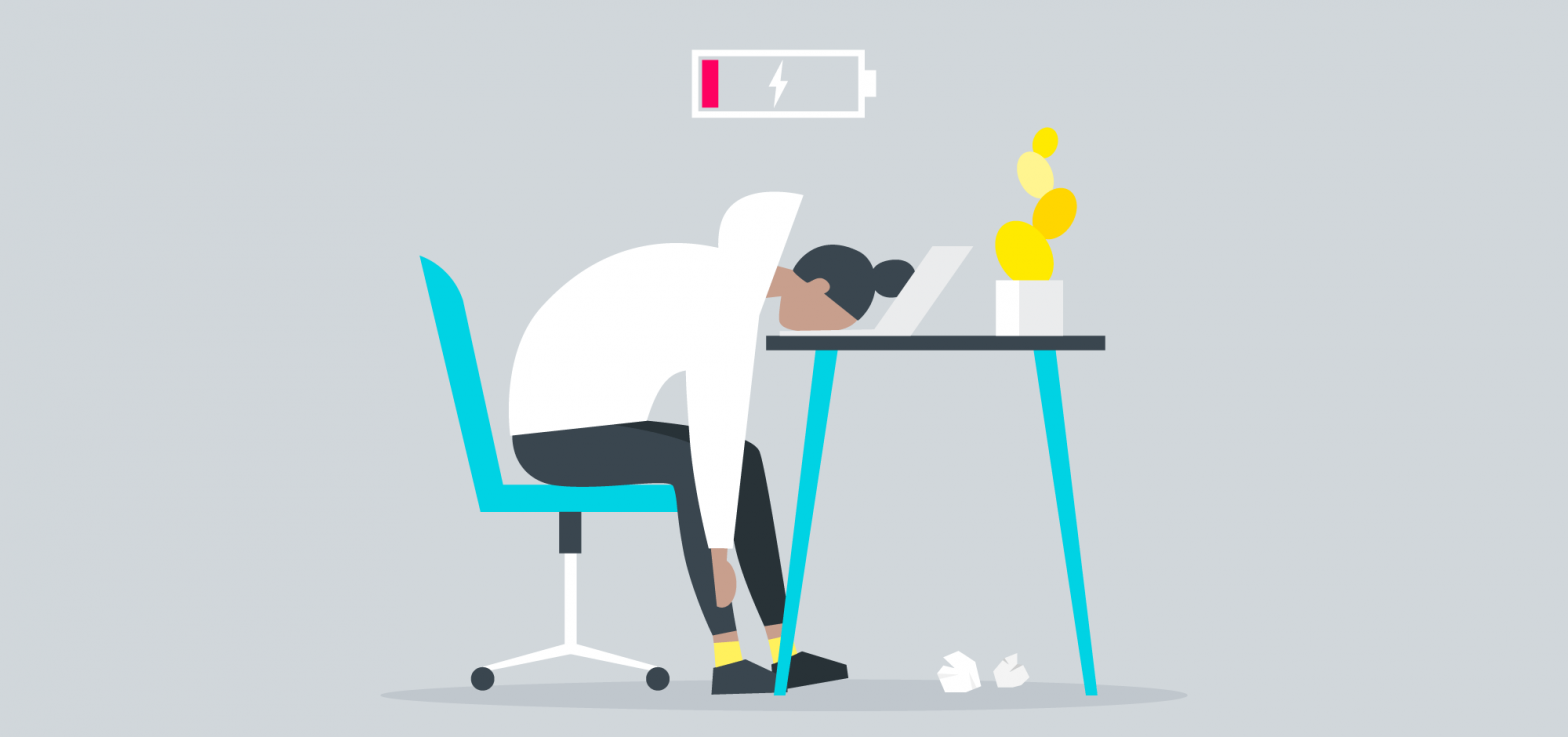6 burnout signs and 3 strong strategies to beat it

Many are affected by burnout, however, it is not widely discussed. Once it happened with the musician, Renars Kaupers, and recently the businessman, Elon Musk, experienced it, too. Two short and dangerous words: burnout syndrome.
Nowadays, burnout most often affects perfectionists and workaholics, young and active people and long-term businesspeople. People who live on the edge and face continuous competition, stress waves, and long to-do lists, duties, and challenges. Read more to get to know, how burnout occurs and how to conquer it.
Burnout sneaks up very subtly. Passion towards work leads to achievements, along with achievements reputation flourishes and competitors become active. They say that it is not so difficult to climb Mount Everest or win Wimbledon tournament, the most difficult part is to retain your positions in the constantly changing world. Higher. Farther. Stronger. Endless to-do lists and unrealistic deadlines. Long-term tress, emotional pressure and high responsibility paves the way to burnout and crash.
In the 21st century, when the amount of daily information and level of competition has reached an unprecedented level, one of the most valuable long-term skill is the ability to recognise burnout and take timely care of yourself. An old proverb says that to defeat an enemy you have to be aware of their weapons.
Classic signs of burnout
Apathy – “Why is it worth doing something?”
Irritability – “My colleagues are idiots who do not know a thing.”
Often illness – “At least, I am allowed not to work now.”
Difficulties to focus – “What did I want to do today?”
Physical and mental exhaustion – “I would like to sleep 100 days and more.”
Sense of helplessness – “I do not see the end of work.”
What to do?
Here are some proven solutions to conquer burnout.

1: Take care of your body
Aerobic training 3 times a week
Exercising or aerobic training 3 times a week is the best solution to retain vitality and tone of your body.
For example,
- Boxing;
- Swimming;
- CrossFit;
- Jogging.
Physical activities help our bodies to process stress, reduce the cortisol level (stress hormone) in the body and allow the mind to tune out of the continuous information flow.
Breathing exercises
In stressful situations people tend to breathe faster and more shallow, which initiates the reaction “escape or fight” in our bodies. Scientists have concluded that breaching exercises reduce blood pressure, calm heart and nervous system, therefore, it is easier to take well-informed decisions.
The easiest technique is 5:5:5:
- Inhale for five seconds through nose
- Hold your breath for five seconds
- Exhale for five seconds through mouth
Limiting coffee and alcohol
In the long term, coffee and alcohol are the enemies of nervous system.
Coffee
Caffein in the coffee injects adrenaline in the body that mobilises the body for a moment and creates the reaction “escape or fight”. In a stressful situation, coffee increases tension and alarm level, not allowing you to focus on work.
Alcohol
Alcoholic beverages contain sugar and toxins that overload the body and adernal glands. Your body uses the energy that you could use to create a new idea or present an idea to process alcohol.

Reduction of coffee and alcohol provides our body an ability to recover, the quality of sleep and energy levels increase. It is easier and faster to take decisions and solve problems.
2. Plan and organise work and leisure time
Organised working day
- Plan your day work considering a time reserve
- Delegate duties and ask your colleagues for help
- Say “No!” to additional work
Of course, in daily life, Murphy’s law, problems, and crises accompany us and we have to solve those issues, however, organising time and work allows to control your working day. Structured to-do list allows you to focus on things you must complete. Trusting colleagues and subordinates provides you time to think/create long-term strategies, to view bigger picture, and create innovative ideas that would not be possible in a continuous work flow.
Planned breaks
- Meditation
- Time for yourself
- Trip/vacation
When there is a lot of work and duties, when you have to reply to clients’ e-mails, phone calls, unanswered Whatsapp messages blink on your screen, it is important to take longer or shorter breaks regularly. A break during the day or morning started with a short meditation or alone time with tea provide an opportunity to get ready for working day and retain a clear mind to complete other tasks.
Breaks, both long and short, vacation or lunch outside work in a pleasant atmosphere allows your nervous system to relax and restart. Moving away from problems and sometimes even colleagues allow you to obtain a new perspective and energy for further tasks.
3: Dedicate quality time for things that are important for you
- Spend time with your family and friends
- Dedicate time for your hobbies that are not related to work and colleagues
To avoid self-isolation and loneliness, it is important to meet people who are important for you. Spending time in a pleasant company and doing what makes you happy. When we are with our close ones, we get the feeling that life brings also joy and rest besides work and problems. This gives balance.

Hobbies (preferably not related to work) allow your body and mind to relax and restore energy reserves. The positive emotions create the right balance between difficulties and joy.
Conclusion
Burnout is not the end, life goes on. If it happens, it is time to develop self-preservation strategy. If burnout is a threat, we hope this article will help you to press “stop” button and restart. Employer, investor, client wants to pay and cooperate and receive things in exchange, including energy, skills, enthusiasm, sharp mind, and ideas. Therefore, care for your physical, emotional and intellectual resources is a regular contribution in your daily life.


